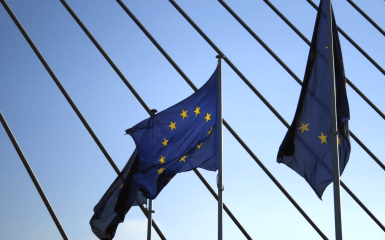The Council of the EU decided to extend the sanctions imposed by the EU in response to the illegal annexation of Crimea and the city of Sevastopol by the Russian Federation until June 23, 2025.
Points of attention
- The European Union has extended sanctions against the Russian Federation for the annexation of Crimea until June 2025.
- Sanctions include a ban on importing products from Crimea and Sevastopol and restrictions on investments and tourist services from these territories.
- The EU does not recognize the annexation of Crimea and continues to support the sovereignty and territorial integrity of Ukraine.
- The European Union has already introduced 13 packages of sanctions against Russia and is preparing to introduce the 14th.
What is known about the extension of EU sanctions against the Russian Federation for the annexation of Crimea
According to the notice, the current restrictive measures were first introduced in June 2014 and include a ban on the import of products originating from illegally annexed Crimea or Sevastopol into the EU, as well as infrastructure or financial investments and tourism services from illegally annexed Crimea or Sevastopol.
In addition, EU restrictions also apply to the export of certain goods and technologies to Crimean companies or for use in the illegally annexed Crimea in the transport, telecommunications and energy sectors or exploration and production of oil, gas and mineral resources.
The EU does not recognize and continues to condemn the illegal annexation of Crimea and Sevastopol by the Russian Federation as a violation of international law, the message says.
The EU stated that since 2022, Russia has continued to violate the sovereignty and territorial integrity of Ukraine with its unprovoked and unjustified aggressive war against Ukraine.
The EU remains steadfast in its commitment to the independence, sovereignty and territorial integrity of Ukraine within its internationally recognised borders and its inalienable right to self-defence against Russian aggression, as well as committed to the full implementation of its policy of non-recognition, the EU added.
What preceded it
It will be recalled that the EU began to introduce sanctions against Russia after Moscow's occupation of Crimea in 2014.
Since the beginning of the full-scale invasion of Ukraine in 2022, the EU has introduced 13 packages of sanctions. The 14th package is being prepared, but the EU countries cannot yet agree on all the details.
German Chancellor Olaf Scholz claims that Germany is not blocking the new package of sanctions, but is trying to make them as effective as possible.




